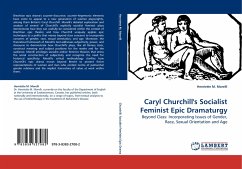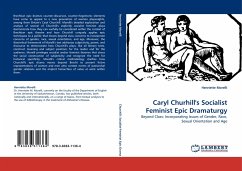Brechtian epic drama's counter-discursive, counter-hegemonic elements have come to appeal to a new generation of women playwrights, among them Britain's Caryl Churchill. Morelli's detailed exploration and analysis of several of Churchill's explicitly socialist feminist plays demonstrate how they can usefully be considered within the context of Brechtian epic theatre and how Churchill uniquely applies epic techniques to a politic that moves beyond class concerns to incorporate concerns of gender, race, sexual orientation, and age. Moreover, the theoretical framework of Morelli's text addresses subjectivity, power, and discourse to demonstrate how Churchill's plays, like all literary texts, construct meaning and subject positions for the reader and for the audience. Morelli privileges socialist and/or feminist theories that stress the social construction of subjectivity and recognize the need for historical specificity. Morelli's critical methodology clarifies how Churchill's epic drama moves beyond Brecht to present fictive representations of women and men who contest norms of patriarchal gender relations and the implicit hierarchies of value at work within them.
Bitte wählen Sie Ihr Anliegen aus.
Rechnungen
Retourenschein anfordern
Bestellstatus
Storno








